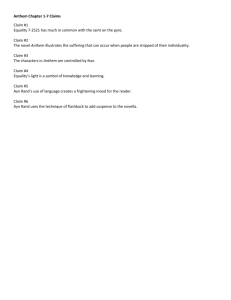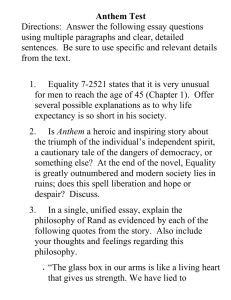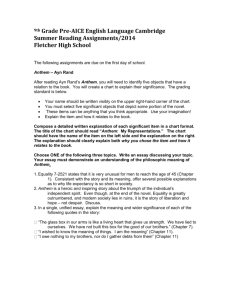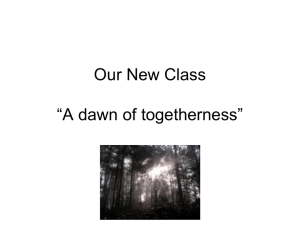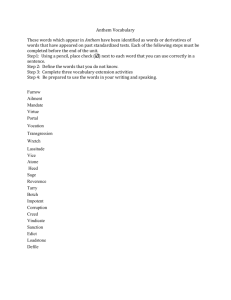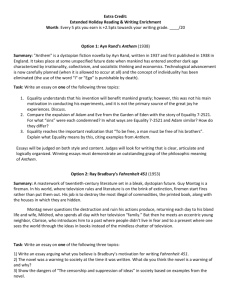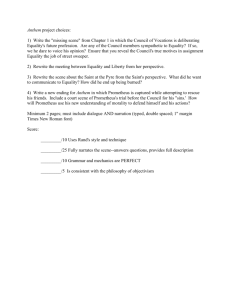In many real and fictionalized totalitarian societies, children live
advertisement
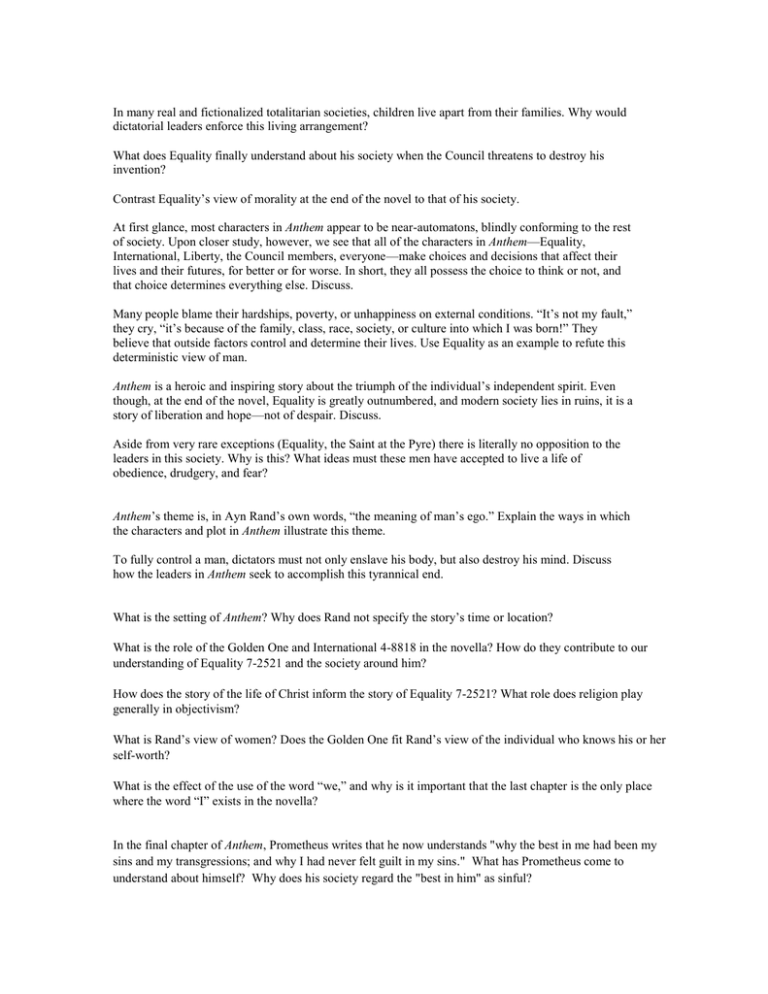
In many real and fictionalized totalitarian societies, children live apart from their families. Why would dictatorial leaders enforce this living arrangement? What does Equality finally understand about his society when the Council threatens to destroy his invention? Contrast Equality’s view of morality at the end of the novel to that of his society. At first glance, most characters in Anthem appear to be near-automatons, blindly conforming to the rest of society. Upon closer study, however, we see that all of the characters in Anthem—Equality, International, Liberty, the Council members, everyone—make choices and decisions that affect their lives and their futures, for better or for worse. In short, they all possess the choice to think or not, and that choice determines everything else. Discuss. Many people blame their hardships, poverty, or unhappiness on external conditions. “It’s not my fault,” they cry, “it’s because of the family, class, race, society, or culture into which I was born!” They believe that outside factors control and determine their lives. Use Equality as an example to refute this deterministic view of man. Anthem is a heroic and inspiring story about the triumph of the individual’s independent spirit. Even though, at the end of the novel, Equality is greatly outnumbered, and modern society lies in ruins, it is a story of liberation and hope—not of despair. Discuss. Aside from very rare exceptions (Equality, the Saint at the Pyre) there is literally no opposition to the leaders in this society. Why is this? What ideas must these men have accepted to live a life of obedience, drudgery, and fear? Anthem’s theme is, in Ayn Rand’s own words, “the meaning of man’s ego.” Explain the ways in which the characters and plot in Anthem illustrate this theme. To fully control a man, dictators must not only enslave his body, but also destroy his mind. Discuss how the leaders in Anthem seek to accomplish this tyrannical end. What is the setting of Anthem? Why does Rand not specify the story’s time or location? What is the role of the Golden One and International 4-8818 in the novella? How do they contribute to our understanding of Equality 7-2521 and the society around him? How does the story of the life of Christ inform the story of Equality 7-2521? What role does religion play generally in objectivism? What is Rand’s view of women? Does the Golden One fit Rand’s view of the individual who knows his or her self-worth? What is the effect of the use of the word “we,” and why is it important that the last chapter is the only place where the word “I” exists in the novella? In the final chapter of Anthem, Prometheus writes that he now understands "why the best in me had been my sins and my transgressions; and why I had never felt guilt in my sins." What has Prometheus come to understand about himself? Why does his society regard the "best in him" as sinful? Are the characters in Anthem too idealized to be believable? Can you relate to any of them? What do you think ultimately drives Equality 7-2521? What is most important to him? Is it his own happiness, as he says it is? Does the philosophical nature of Anthem undermine or strengthen it as a work of literature? Is it possible to appreciate Anthem as a work of literature without agreeing with it as a work of philosophy? Is Anthem convincing in its attempt to present the human ego as an object worthy of reverence? Is there an "argument" for objectivism in Anthem? And do you yourself find the objectivism Equality 7-2521 adopts compelling? Why or why not? Is Randian objectivism the same as what we ordinarily call "selfishness," or is it something different? Is Equality 7-2521 a selfish character? Does Ayn Rand promote any other values in Anthem besides objectivism? Is it possible to agree with some of its moral message while rejecting the objectivism? Does one have to choose between " objectivism " and "collectivism," as Ayn Rand seems to suggest? Or are there positions in between those two? What would they look like? Is Anthem still relevant today? Why or why not?
